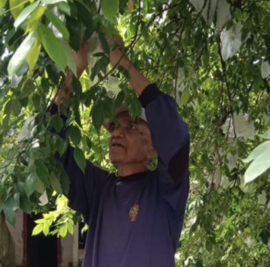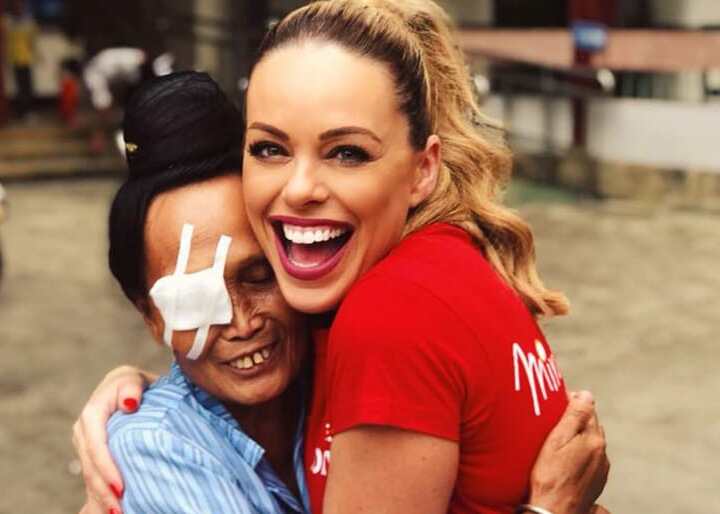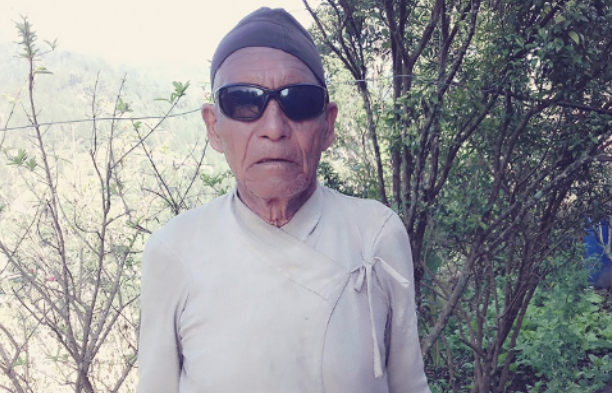Established in 2000 by the World Health Organization (WHO) and International Agency for the Prevention of Blindness (IAPB), World Sight Day is a global event created to draw attention to vision impairment and blindness.
It’s observed annually on the second Thursday of October to encourage eye screenings, policy advocacy and improved eyecare access.
The theme for World Sight Day 2024 was “Children, love your eyes”. The campaign encouraged awareness of the importance of child eye health and of identifying vision issues at an early age.
The need for World Sight Day
According to the WHO, at least 2.2 billion people globally live with some form of vision impairment. Nearly half of all blindness and moderate to severe distance vision impairment (MSVI) is considered avoidable. That’s at least a billion people whose sight loss could have been prevented or treated.
The top causes of MSVI and blindness are:
- Uncorrected Refractive Errors (URE) such as Myopia, Hyperopia, Presbyopia and Astigmatism
- Cataract
- Age-related Macular Degeneration (MD)
- Glaucoma
- Corneal Opacity
- Diabetic Retinopathy
- Trachoma
Preventing or treating avoidable visual impairment and blindness is important to achieve the UN Sustainable Development Goals (SDGs), most notably Goal 3: Good health and well-being.
CBM’s work on eye health
Throughout CBM’s 115-year history, our field programmes have helped to prevent blindness, eradicate poverty and transform the lives of people with disabilities in the world’s poorest countries.
Our inclusive eye health work aims to reduce avoidable visual impairment and blindness. We are currently in the process of training more eye care professionals, completing more eye surgeries for both children and adults, as well as providing glasses to children and adults in some of the world’s poorest countries.
We have been working specifically to combat the top causes of visual impairment and blindness, such as cataracts, with our Miracles Day campaign which raised over 44,000 Miracle gifts of sight.
We also work to ensure those who are permanently vision impaired can access the most relevant support and opportunities to live life to their full potential

From cataract patient to eye health advocate
A story that embodies CBM’s mission each World Sight Day is that of Nurzamzam, a 65-year-old from Indonesia with uncorrected vision impairment due to cataracts.
For five years, his declining eyesight meant he had to abandon his market stall and rely on support from his family. Social stigma and fear kept him from seeking treatment but CBM volunteer, Ulfah, reassured him that cataract surgery was simple and affordable.
With CBM’s support, Nurzamzam underwent a procedure to restore his vision and his independence. Now, he actively educates his community about vision care, breaking down fears and ensuring more people can access the treatment they need.
Lucy Holmes joins the mission for sight
Australian media personality Lucy Holmes has been an avid supporter of CBM’s Miracles Day campaign – an initiative closely linked to World Sight Day. By sharing real-life stories of individuals who have regained their sight through affordable cataract surgery, she helps raise awareness about the impact of avoidable blindness.
Many children and young people experience vision impairment that could be prevented or corrected with a simple eye test and access to quality eye care. Lucy encourages Australians to come together as friends, colleagues, and families to donate and help provide life-changing surgeries to those in need.
Her dedication highlights the importance of international efforts in ensuring access to healthy vision for all.


A young father’s miracle of sight
Armon, a young father from the Philippines, faced an uncertain future when his vision began to deteriorate. Struggling with blurry eyesight and unaware of the severity of his condition, he continued riding his motorcycle – until an accident made him realise something was seriously wrong.
Diagnosed with cataracts in both eyes, Armon was at risk of losing his job at a call centre, which he relied on to support his family. The high cost of surgery prevented him from getting the treatment he needed, but a CBM-supported outreach program offering free eye treatments helped change this.
After undergoing successful cataract surgery, Armon regained his sight, securing a future where he could continue working and caring for his children. His story highlights the difference accessible eye care can help make for people around the world.
Preventing blindness through community hospitals in Nepal
In Eastern Nepal, where access to quality eye care is limited, CBM supports a community hospital dedicated to helping prevent blindness. This initiative is critical for individuals like 80-year-old Prem, whose vision was clouded by cataracts.
Without treatment, Prem faced complete blindness, severely impacting his quality of life. CBM’s work in this region helps ensure people from remote communities receive the eye care they need, including cataract surgery, glasses and vision impairment education.
The hospital’s efforts align with the World Health Organization’s mission to eliminate avoidable vision loss through early intervention and treatment. By raising awareness and providing accessible eye care, CBM is making a lasting difference in Nepal and beyond.


Catie's commitment to helping others see the future
Catie, a long-time CBM supporter, has dedicated herself to raising awareness about preventable blindness and the importance of vision care. She wears an eye patch in solidarity with those experiencing vision impairment, using it as a conversation starter to educate others about the significance of World Sight Day.
Many children miss out on education due to uncorrected vision impairment, which can be easily treated with glasses or surgery. Through her advocacy, Catie encourages people to get involved, support CBM’s work, and contribute to a future where everyone can access good eye health.
Get involved in World Sight Day
Donate to CBM this World Sight Day and help restore sight for people living in the world’s poorest places.
It all starts with an eye test.
